Memorial Hastanesi Tüp Bebek ve Genetik Merkezi “Current Techniques and Future Trends on Gamete and Embryo Manipulation" adlı uluslararası toplantının ev sahipliğini yapmıştır.
Nisan 2006

Speakers
Hands on Course Book
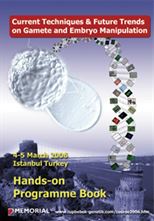
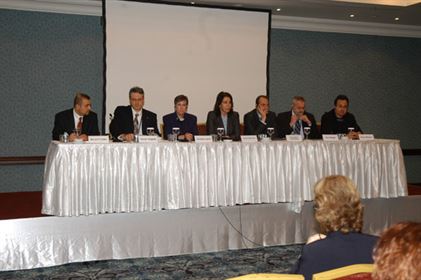
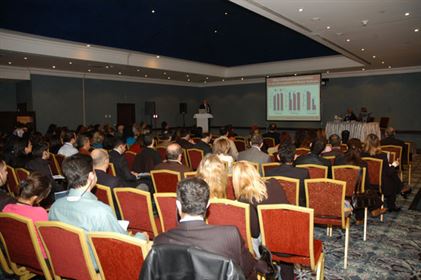
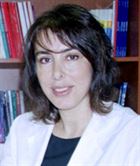
Prof. Semra Kahraman obtained her medical degree from Hacettepe University in 1981, and a specialty degree in obstetrics and gynecology in Ankara University Medical School in 1989. After practicing ART related techniques in Norway and Belgium, she founded the Sevgi Hospital ART Unit, Ankara in 1993 and Istanbul Memorial Hospital ART & Reproductive Genetics Centre in 2000. She has also practiced ART-related techniques in Cornell University and Reproductive Genetics Institute, in USA.
She has been working for more than 12 years in assisted reproduction and human embryology. During this period, through intensive work and worldwide collaborations with senior scientists, she and her team successfully realized numerous novel ART applications and obtained first pregnancies in Turkey in cases such as severe male infertility, testicular spermatozoa retrieval, embryo freezing and preimplantation genetic diagnosis. Besides these pioneering works, the Centre has also been assigned as a certified centre of education by Ministry of Health in human ART and IVF in Turkey. This important step also enabled the Centre to become one of the biggest ART clinics nationwide as well as worldwide. She and her team recently founded a research and development unit in the Centre, focusing on embryonic and adult stem cell research. Novel stem cell lines and techniques are now being designed for in order to extend research towards therapy.
Prof. Kahraman is an active member in several societies including ASRM, ESHRE and APART and one of the founding members of the Preimplantation Genetic Diagnosis International Society. She has been assigned as an Editor in Reproductive Biomedicine Online and referee of numerous scientific Journals including Human Reproduction and Fertility and Sterility. She has been appointed as Associate Professor at Ankara University Medical School in 1994 and received her Professorship in 2004 from Yeditepe University School of Medicine, Department of Obstetrics and Gynecology. She is also a member of the Turkish Ministry of Health High Council on Assisted Reproductive Technology. Semra Kahraman has published more than 150 papers in Turkish and international scientific journals, more than 10 book chapters and two books. She has become a frequent lecturer at national and international conferences and seminars.
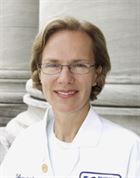
Dr. Racowsky is Director of the ART Laboratory at Brigham & Women’s Hospital in Boston, Massachusetts and an associate professor of Obstetrics and Gynecology at Harvard Medical School. She previously directed the ART Laboratory at the University Medical Center in Tucson, Arizona. Having graduated with a Bachelor of Arts in Zoology at the University of Oxford, she received her Ph.D. in Reproductive Physiology from the University of Cambridge in England, and did post-doctoral fellowships at Harvard Medical School, first with Dr. Koji Yoshinaga, and then with Dr. John Biggers.
She is a peer-reviewer for numerous journals in reproductive medicine and has served on a number of editorial boards. She has been a member of several professional committees including her current membership on the SART Executive Council and the ASRM Practice Committee. She is also the 2006-2007 President of the New England Fertility Society.
Dr. Racowsky’s research interests include environmental factors affecting egg quality, the molecular and cellular mechanisms underlying oocyte maturation in vivo and in vitro, and methodologies for assessing human embryo developmental competency.
She has authored over 50 peer-reviewed papers on various aspects of mammalian oocyte and embryo physiology, and has published several news releases and book chapters. Dr. Racowsky has contributed to the establishment of guidelines for human embryonic stem cell research through the 2005 National Academies of Sciences workshop to develop these guidelines, and currently sits on the Embryonic Stem Cell Research Oversight Committee of Partners’ Healthcare in Boston.
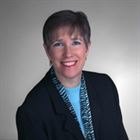
Dolores J. Lamb, PhD, Professor in the Departments of Urology and Cell Biology is an investigator in the fields of genetics of male infertility, stem cells, steroid action and control mechanisms of spermatogenesis.
She served on the Editorial Boards of Fertility and Sterility, The Journal of Andrology, and currently serves on Urology, Journal of Urology, Steroids, Journal of Andrology and Biology of Reproduction. She is Associate Editor for Human Reproduction. Dr. Lamb is Past President of the Society for Male Reproduction and Urology of the American Society for Reproductive Medicine (ASRM), Past President of the Society for Basic Urologic Research (SBUR), Past Secretary for the American Society of Andrology and is President of the Society for the Study or Male Reproduction (SSMR) of the American Urological Association (AUA).
She is a Clinical Chemist and High Complexity Laboratory Director (American Association of Bioanalysts), supervising one of the largest Andrology laboratories in the country. Dr. Lamb has published over 180 papers and trained over 50 fellows and students.
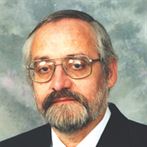
Dr. Rieger is currently the Scientific Director of LifeGlobal LLC. He has previously served as Assistant Professor, Université de Montréal; Research Scientist, University of Guelph; Senior Research Fellow, AgResearch, New Zealand; Special Lecturer, University of Saskatchewan; and Visiting Senior Scientist, Università degli Studi di Milano. He was also an invited visiting scientist at the University College Dublin, the University of Melbourne, the Université Catholique de Louvain, the University of Wisconsin, and INRA, Nouzilly, France.
Dr. Rieger is a frequent lecturer in numerous workshops and conferences, and was the founder of Embryo Mail, an international electronic mail network, established in 1993.
His scientific investigations focused on the relationship between the metabolic activity and development of mammalian gametes and embryos, and the periovulatory endocrinology of superovulation.
Dr. Francesco Fiorentino is the founder and the laboratory director of EmbryoGen Srl - Preimplantation Genetic Diagnosis Centre, Rome – Italy. Graduated as a biologist in 1992, he completed his Ph.D. in Messina University – Italy in 1995. Between 1995 and 1998, he worked for Italian Police Department- Forensic Science Service, performing research and investigation regarding forensic genetics and DNA analysis and since 1998; he has been working as the director of “GENOMA” - Molecular Genetics Laboratory, Rome – Italy. He has also been working as a consultant of different of IVF Center in Europe and Middle East for Preimplantation Genetic Diagnosis (PGD).
Dr. Fiorentino is author or co-author of different papers published on Italian and international scientific journals and a member of several national and international scientific associations including European Society of Human Reproduction and Embryology (ESHRE) and Italian Society of Human Genetics (SIGU).
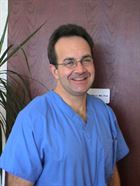
Klaus E. Wiemer developed his interests in Reproductive Physiology and assisted reproduction while growing up on a cattle ranch in Mexico. He received his Masters degree in Reproductive Physiology with emphasis in Male Physiology from New Mexico State in 1985. Subsequently, he received his PhD in 1989 in Reproductive Physiology with emphasis in Embryology from Louisiana State University (LSU). During his studies at LSU, Klaus developed many culture methods that were successfully used on embryos from many domesticated species. As a result, he was awarded the first runner up in the student competition from the International Embryo Transfer Society for his research.
One of his culture systems known as co-culture mimics the uterine/fallopian tube environment by placing embryos on a layer of cell that are originally found in the uterus or fallopian tube. The co-culture system resulted in superior development of embryos for many species. Dr. Wiemer was the first to apply the co-culture system to assisted reproduction with human IVF. These studies resulted in increased pregnancy rates and Klaus was awarded the overall grand prize by the American Society for Reproductive Medicine in 1988. Klaus was one of the first embryologists in the US to achieve pregnancies with human blastocyss.
Dr. Wiemer successfully directed several IVF programs in the United States. Most recently, his program in North Carolina produced some of the highest pregnancy rates in the United States. Klaus conducts research, in addition to his clinical responsibilities, in the following areas: A) improving the developmental potential of human embryos through variations in human embryo culture media; B) exploring the relationship between embryo morphology and pregnancy rates and C) the effects of initial follicular dynamics and follicular stimulation on oocyte and embryo quality.
Incidentally, Dr. Wiemer speaks fluent Spanish. Dr. Wiemer received the LIFE Award for Laboratory Innovations in Fertility and Embryology in 1997. Dr. Wiemer is happily married and is the father of two boys aged 9 and 13.
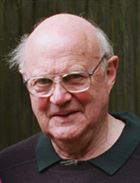
Dr. Biggers is currently Professor of Cell Biology, Harvard Medical School (1971-) and Member of the Laboratory of Human Reproduction and Reproductive Biology, Harvard Medical School. Since 2005, he has also served as a consultant to LifeGlobal LLC.
In 1958, together with Dr. Anne McLaren, he demonstrated that mouse blastocysts that had developed from eight cell embryos in a simple chemically defined medium would develop into normal young after transfer to the uterus of surrogate mothers. In 1967, Dr. Wesley Whitten and he also demonstrated that mouse blastocysts that had developed from zygotes in vitro would also develop after transfer to a surrogate mother into normal young. Since then, one of his interests has been the physiology of the preimplantation embryo and the optimization of media for the culture of mammalian preimplantation embryos, which has led to the KSOM family of media.
He is the past President of the Society of Reproduction, former Editor-in-Chief of Biology of Reproduction and chief Scientific Advisor to the Ethics Committee, US Department of Health, Education and Welfare. He has been honored as a Fellow of the American Association for the Advancement of Science, and as recipient of the Hartman Award of the Society of Reproduction, the Pioneer Award of the International Embryo Transfer Society, and the Marshall Medal of the Society for the Study of Fertility, UK.
After graduating from Bosphorus University, Department of Molecular Biology & Genetics in 1996, he has completed his M.Sc. degree in Bilkent University, specializing in the p53 dependent cell cycle control and cancer. Between 1998-1999, He worked as research scientist in the Institute of Cancer Research, London, UK.
In 2000, he joined Istanbul Memorial Hospital ART& Genetics Centre and worked as Molecular Biologist/Embryologist. Since 2003, he has been working as R&D Laboratory Director in the same institution. His team has recently succeeded in establishing the first human embryonic stem cell lines as well as stem cells from adipose tissue in Turkey.
Besides embryonic/adult stem cell research, his current research interests are isolation and culture of human embryonic germ cells in vitro and molecular mechanisms of implantation.
He is a member of several societies including International Society for Stem Cell Research (ISSCR) and Preimplantation Genetic Diagnosis International Society (PGDIS).
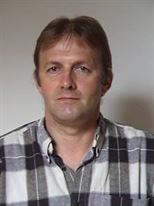
Pierre Vanderzwalmen (Engineer in Biochemistry and biotechnology science - Brussel, degree of master in biology of reproduction - Paris) is currently working as scientific coordinator at the Institute for Reproductive Medicine and Endocrinology of Professor Zech in Bregenz (Austria) and of Professor Lejeune in CHIREC in Brussel (Belgium)
He began his work in the field of embryology in 1978 in the Liege veterinary school and studied together with Dr Massip the development of bovine embryos using cinematographic analysis and set up micromanipulation techniques for nuclear transfer. His research interests have focused on cryopreservation and he obtained in 1985 the first mice and calves after morulae and blastocysts vitrification .
He moved to human IVF in 1989 in the unit of Prof Schoysman in Brussel and obtained in 1993 the first baby after ICSI with testicular sperm. His field of interests include ICSI with immature spermatozoa, in vitro-culture to the blastocyst stage, ICSI after selection of spermatozoa at very high magnification and analyse different factors that influence the surival of vitrifed human blastocyst.
Semih Özkan, M.D., Associated Professor in Urology. He graduated from Hacettepe University medical faculty in 1981 and finished his postgraduate training in Urology in the same university hospital in 1986. After he completed the military service as an urologist in the air force hospital in Izmir, he started his academic career in Urology in Inönü University Medical Faculty. He became Associated Professor in Urology in 1997.
Since 2000, he has been working in the Istanbul Memorial Hospital ART & Reproductive Genetics Centre as the director of the Andrology Unit. His main interests are role of genetics in the management of male infertility and the impact of sperm retrieval techniques in the ART outcome for severe male infertility patients.
Dr. Özkan is a member of Turkish Urological Association and Turkish Andrology Association.
Semra Sertyel obtained her B.Sc.in Biology from the Middle East Technical University of Ankara. In 1997, she joined Ankara Sevgi Hospital IVF team and was trained in andrology and embryology. She then worked as the head of the andrology laboratory in the same institution. After moving to Istanbul, she participated in the foundation of Istanbul Memorial Hospital ART & Reproductive Genetics Centre in 2000. She is currently serving as IVF Laboratory Director in the same institution .
Her areas of scientific interests are mainly morphological analysis of gamete cells, embryo culture systems and quality control in IVF laboratories. Her team is the first to cultivate human embriyos on the autolougous endometrial monolayer cells and obtain pregnancies in Turkey. She is also actively involved in other on-going projects in the laboratory including embryo vitrification techniques and three dimensional coculture systems.
Dr.Yaman Sağlam is a medical geneticist and the Director of Genetic Diagnosis Center in Istanbul Memorial Hospital. Upon obtaining his Ph.D. degree on Medical Biology and Genetics, he served as a frequent lecturer in Kadir Has University for two years between 2001-2003. He has also been participated several training courses in Belgium and in Chicago, USA on preimplantation Genetic Diagnosis (PGD). In 2004, he joined Istanbul Memorial Hospital, ART & Genetics Centre, which is one of the largest PGD reference centers worldwide.
His main interests include the origin and the impact of numerical and structural chromosomal abnormalities on human embryos and ART outcome, as well as genetic factors causing male infertility.